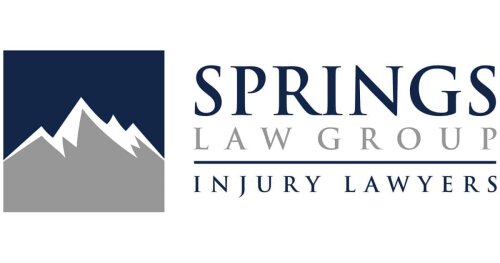
Best Toxic Mold Lawyers in Colorado Springs
Share your needs with us, get contacted by law firms.
Free. Takes 2 min.
List of the best lawyers in Colorado Springs, United States

About Toxic Mold Law in Colorado Springs, United States:
Toxic mold, also known as black mold, can pose serious health risks to individuals exposed to it. In Colorado Springs, United States, laws have been put in place to address issues related to toxic mold in residential and commercial buildings.
Why You May Need a Lawyer:
You may need a lawyer for toxic mold issues in Colorado Springs if you believe your health has been affected by mold exposure, if you are facing disputes with landlords or property owners regarding mold issues, or if you are seeking compensation for damages caused by toxic mold.
Local Laws Overview:
In Colorado Springs, property owners are required to maintain their properties in a habitable condition, which includes addressing mold issues. Landlords have a duty to keep rental properties free from hazardous conditions, including toxic mold. Tenants also have rights under Colorado landlord-tenant law to address mold issues in their rental units.
Frequently Asked Questions:
1. What are the health risks associated with toxic mold exposure?
Exposure to toxic mold can cause respiratory issues, allergic reactions, skin irritation, and other health problems.
2. How can I determine if there is toxic mold in my property?
You may need to hire a professional mold inspector to conduct testing and determine the presence of toxic mold.
3. Can I sue my landlord for toxic mold exposure?
If your landlord was aware of the mold issue and failed to address it, you may have legal grounds to sue for damages.
4. What should I do if I discover toxic mold in my rental property?
You should notify your landlord immediately and document the mold issue with photographs and written correspondence.
5. Can I break my lease if there is toxic mold in my rental unit?
In some cases, tenants may be able to break their lease if the mold issue poses a health hazard and the landlord fails to address it.
6. Is there a statute of limitations for filing a lawsuit related to toxic mold exposure?
Statutes of limitations vary by state, but it's important to act quickly if you believe you have a legal claim related to toxic mold exposure.
7. Can I be held liable for toxic mold in a property I own?
Property owners have a duty to maintain their properties in a safe condition, including addressing mold issues. If you are a property owner, you may be held liable for damages caused by toxic mold.
8. How can a lawyer help me with my toxic mold case?
A lawyer with experience in toxic mold cases can help you understand your rights, negotiate with landlords or property owners, and pursue legal action if necessary to seek compensation for damages.
9. What evidence should I collect if I suspect toxic mold in my property?
You should document the mold issue with photographs, keep records of any communication with landlords or property owners, and gather any medical records related to health issues caused by mold exposure.
10. How much does it cost to hire a lawyer for a toxic mold case?
Legal fees for toxic mold cases can vary depending on the complexity of the case and the lawyer's fee structure. Some lawyers may offer free consultations or work on a contingency fee basis, where they only collect a fee if you win your case.
Additional Resources:
For more information on toxic mold laws in Colorado Springs, you can contact the Colorado Department of Public Health and Environment or seek guidance from local legal aid organizations.
Next Steps:
If you are facing legal issues related to toxic mold in Colorado Springs, it's important to consult with a qualified attorney who specializes in these types of cases. An experienced lawyer can help you understand your rights, navigate the legal process, and seek justice for any damages caused by toxic mold exposure.
Lawzana helps you find the best lawyers and law firms in Colorado Springs through a curated and pre-screened list of qualified legal professionals. Our platform offers rankings and detailed profiles of attorneys and law firms, allowing you to compare based on practice areas, including Toxic Mold, experience, and client feedback.
Each profile includes a description of the firm's areas of practice, client reviews, team members and partners, year of establishment, spoken languages, office locations, contact information, social media presence, and any published articles or resources. Most firms on our platform speak English and are experienced in both local and international legal matters.
Get a quote from top-rated law firms in Colorado Springs, United States — quickly, securely, and without unnecessary hassle.
Disclaimer:
The information provided on this page is for general informational purposes only and does not constitute legal advice. While we strive to ensure the accuracy and relevance of the content, legal information may change over time, and interpretations of the law can vary. You should always consult with a qualified legal professional for advice specific to your situation.
We disclaim all liability for actions taken or not taken based on the content of this page. If you believe any information is incorrect or outdated, please contact us, and we will review and update it where appropriate.







